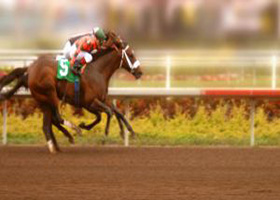

Still, despite years of CAPM, Arbitrage Pricing Theory, Black-Scholes, Gordon dividend-growth models and other tools of the trade, the crowds – the punters – apparently are open to less theoretical approaches.
They probably always were. But now Ladbrokes, the venerable London betting shop, is offering bettors the ability to gamble on the closing price of the TSX, exchange rates and even individual companies. Sounds like an actively managed ETF; or a futures market. Looks like one too but for the absence of continuous trading. The bet, once made, sticks, despite ticks in market price. It’s a market order that may or may not be filled, but one with a built-in stop loss.
Naturally, regulators seem concerned. Not that bettors may not have a proper prospectus. Nor that best bid-offer rules are not being followed. But that insider trading might arise. As quoted in The Toronto Star,
“It’s not just the size of the market which could tweak the OSC’s attention though. The wagering also raises the possibility of company insiders manipulating their company’s share price to make their gamble pay off, says Kelley McKinnon, a partner and securities litigator at Gowlings law firm.
“’Regulators care if someone manipulates stock prices for their own benefit. Manipulation is an offence. While gambling enterprises wouldn’t be in (the OSC’s) jurisdiction, regulators would likely investigate someone manipulating stock prices in order to win their bet,’ said McKinnon, the OSC’s former deputy director of enforcement, and a current member of the OSC’s Enforcement Advisory Committee.
“’Canadian securities regulations dictate that company insiders must report any holdings in company stock or ‘related financial instruments,’ according to the OSC’s website. That makes the Ladbrokes wagers a security, which the OSC in theory can regulate, says Ed Waitzer, a partner at Stikeman Elliott law firm, and former OSC chair.
“’Is it a security? Probably. The case law basically says a security is anything where the value is related to the performance of the entity in some way,’ said Waitzer.”
No point in laying odds on that one, not if regulation extends only to registered market participants rather than owners of off-track betting saloons.
Still, that may be a diversification option for money managers. Why not cover all the bases when it comes to risk assets: ponies and portfolios, OTC and OTB, large-caps and lottos?
Some Connecticut asset management executives seem to have done just that, though perhaps without too much thought. They grossed $254 million on a $1 Powerball lotto bet.
“’The lottery is all about dreaming, and that runs across all demographics and all people,’ said Anne Noble, the Connecticut lottery’s chief executive.”
While their firm, Belpointe Assset Management, does co-invest in alternative assets, there’s no evidence that lottos are in the investment menu. But co-investing, apparently, is, according to The New York Times:
“The three men made — or rather, multiplied — their fortunes with a single $1 ticket purchased at a gas station in nearby Stamford, a Connecticut lottery spokeswoman said. …
“The following day, when the results were announced, the co-workers realized they had won a lottery with odds – 1 in 195,249,054, to be specific – that would make even the boldest hedge fund manager run for the hills.”
New meaning for black swan investing: a dollar here, a dollar there, these small but regular losses might amount to something. Then again, most probably they won’t … no more than rolling up the rim at the local TimBits equivalent will.
